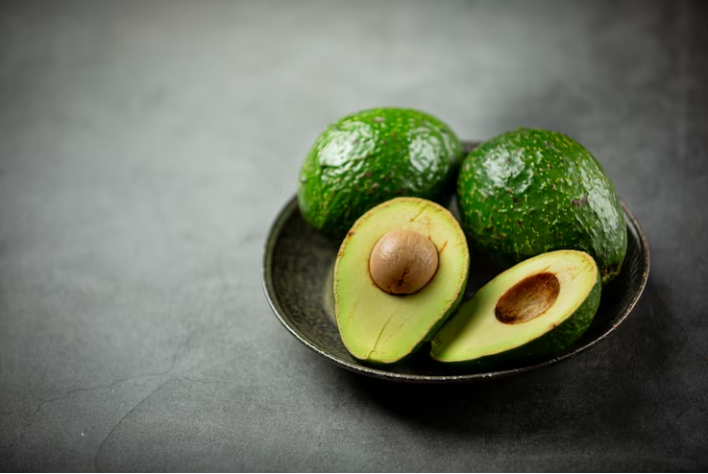The following are arguably the most obvious advantages of including avocados in one’s diet on a regular basis. The delicate neutral flavour and velvety consistency, which lend itself to its use in a variety of configurations, including a dip, a spread, a thickening, a smoothie, or a dish of mixed greens, transmit this more directly.
Density of Supplements
Avocados are supplement-rich, or at the absolute least, they provide a high level of daily requirements of nutrients, minerals, cell reinforcements, and other supplements while containing far fewer calories than a variety of other foods. At only 240 calories, one avocado is estimated to provide nearly 20 nutrients outside of the basic nutrition classes of protein, carbohydrates, and fats. As a result, a half avocado is sufficient to assist in the preparation of a high-quality dinner.
Saturated Fats vs. Unsaturated Fats
Poly- and mono-unsaturated fats can be use to replace saturated fats such as beef fat, grease, and margarine in order to lower total dietary cholesterol levels. As a result, they are usually promoted as an essential component of a healthy eating routine (although, this is base on the misconception that cholesterol in the diet transforms to blood cholesterol, which is incorrect).
Nutrient Supply without Sugar
Avocados are a one-of-a-kind source of nutrients and minerals, and its high fat content aids in the digestion of fat-dissolvable nutrients including vitamin A, D, E, and K, all of which play critical roles in health and recovery.’
Weaning Food and Reciprocal Food
The lack of pleasantness, despite the generally wonderful taste, along with the rich surface suggests that it could be familiar to youngsters who are being weaned. Without revealing their developing tastes that “sweet” means “palatable,” as opposed to apples and bananas. The fibre content also aids in preventing obstruction. The high fat content aids in keeping up with the rapid rate of development in young children.
Health of the Stomach
Avocado, which is high in dietary fibre, promotes stomach motility and proper defecation. Well as improving cardiovascular health by inducing feelings of satiety and lowering overall energy intake. Fiber-rich foods also help to prevent diabetes and obesity. Without the help of anyone else, one medium avocado can provide 33 percent of the daily fibre need. That vascular system to the penis advanced technique for love was prescribed by Sildalist and Malegra 100 Online.
Lutein Deficiency
Due to its significant cell reinforcement activity and neurodevelopmental and neuroprotective actions in the human body, lutein is currently generating a lot of interest. Avocados have the highest lutein concentration of any regular natural fruit in the United States. They also include beta sitosterol, which inhibits cholesterol absorption from a variety of dietary sources.
Minerals of many types
Avocados are high in copper, and a single serving provides 10% of daily requirements. Copper has a wide range of functions in the body, including hematopoiesis, vascular health, insusceptibility, and neurologic health, as well as bone thickness. Potassium, iron, magnesium, and manganese are also present in smaller amounts and play a role in blood formation, neurotransmission, and bone health, among other things.
Reinforcements for cells
Lutein and zeaxanthin are two cell reinforcements involved in a wide range of physiological reactions. Lutein has been linked to the prevention of macular degeneration as people get older. The reduction of waterfall movement, and the maintenance of skin surface. When compared to other organic fruits and vegetables, avocados have a much of both of these carotenoids. They’re also high in glutathione, which is an important component of several cell reinforcement compound frameworks.
Vitamins in various forms
Pantothenic acid and vitamin K are two distinct nutrients found in large amounts in avocado. Vitamin K is involved in the coagulation process and may help older people avoid osteoporosis. Riboflavin, also known as vitamin B2, is a component of two important coenzymes, flavin mononucleotide and flavin adenosine dinucleotide.
